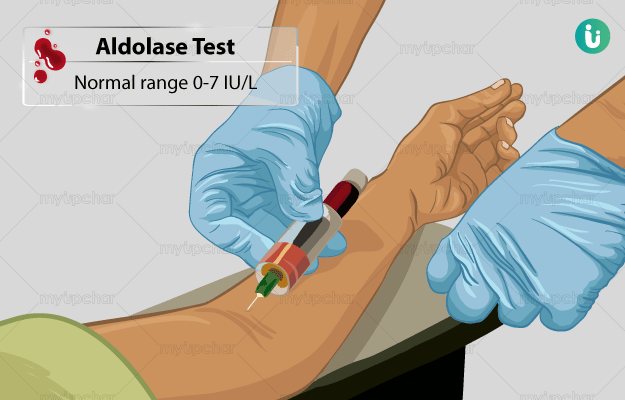What is an Aldolase test?
An aldolase test is a simple blood test that is done to estimate the concentration of the enzyme aldolase in blood. Aldolase is present in every cell of the body however it is mainly found in skeletal muscles, liver and brain. It is one of the vital enzymes in the process of glycogen breakdown. Damage to muscle tissues releases aldolase in blood, hence aldolase test is commonly recommended in conditions that are characterised by prominent muscular damage such as in case of myocardial infarction, muscular dystrophy, pancreatitis and in some liver diseases.






























